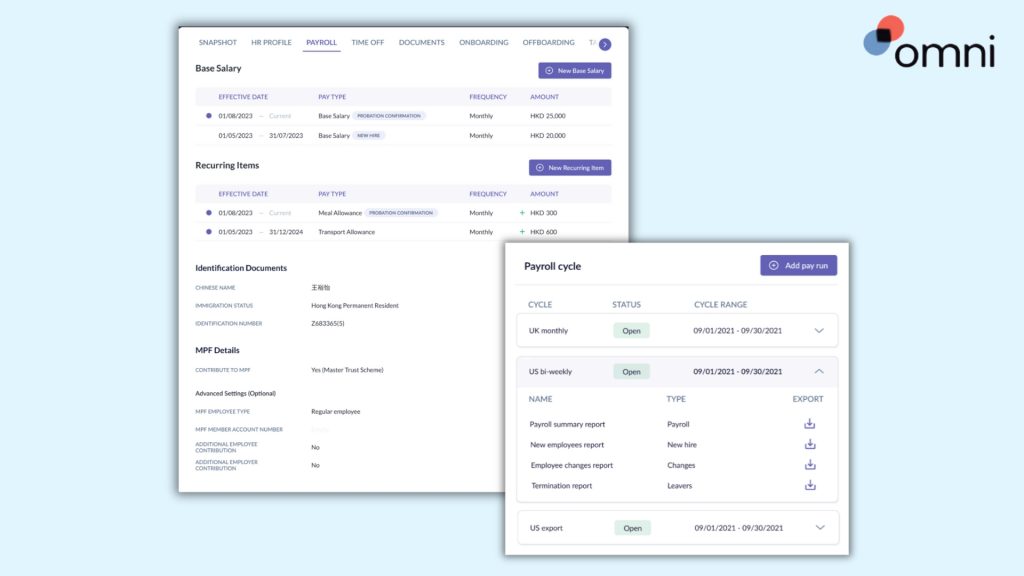The global market size of outsourced services was worth over $90 billion USD in 2019, doubling its value since 2000. With the rise of outsourcing, it’s only natural to question how you can source talent in the global market without establishing other bases around the world.
Many seamless solutions are there to help your business expand, such as a global employer of record (EOR), facilitating hiring and streamlining the recruitment process in foreign markets.
In this article, we’ll explore EORs, elaborating on their advantages and disadvantages to help you decide if an EOR is the right model for your business.
Defining an Employer of Record (EOR)
EOR is a third-party agency that takes on the legal responsibility of hiring, recruitment, payment, management, and HR processes on behalf of your company. In other words, they serve as the registered employer for oversea’s employees while you remain in control of the day-to-day operations.
It’s crucial to note that EORs don’t replace your HR resources (they only augment them) to help you manage your recruits. In that sense, they support a company’s goal of international expansion.
An EOR helps businesses of all sizes to employ talent from around the world, working across international borders with extensive knowledge and resources about various local markets and employment laws.
So what exactly falls under the responsibilities of an EOR? Simply put, EORs have the legal authority to conduct tasks pertaining to employment, immigration, benefits, and payroll, which are as the following:
- Running background checks on potential candidates
- Drafting, issuing, and maintaining locally-compliant employment contracts
- Providing work visas and permits according to local laws
(such as helping navigate and apply for a Singapore employment pass) - Onboarding employees in the country you’re recruiting from
- Withholding payroll costs and taxes from employees
- Issuing wages and administering benefits
- Managing timesheets and leave allowance
- Terminating contracts when necessary
- Compliance with offboarding and termination labor laws
To appreciate the weight that an EOR takes off your shoulders, let’s go back to a time when your only option was traditional employment. Maybe you’re running a company in APAC and want to expand your business operations to Guatemala.
You’d need to establish a subsidiary in that country, register your company with the local government, comply with local employment laws, handle taxes, insurance, and banking. If you wish to further expand to another country, you’d need to start that process all over again.
In other words, EORs make it easy for organizations to expand beyond their local borders while ensuring compliance with local laws and regulations.
The Pros of Using an EOR
EORs can open up a wealth of opportunities for organizations looking to expand their network of talent and business operations.
Global Expansion and Compliance
If you dream of your business expanding worldwide, that’s exactly what EOR is designed for. It facilitates global expansion by eradicating the need for a local entity in the foreign country, a process that consumes time, effort, and money.
Thanks to this employment arrangement, you pass on the logistics to the EOR who becomes responsible for negotiating complex international employment laws and negotiations. They empower you to tap into the international talent pool.
Speed and Flexibility
It can be weeks or even months before you hire international talent the traditional way. With an EOR, it can take only a few days, rendering this the fastest method of building a global workforce. That’s because you can skip establishing an entity in the foreign country you want your business to operate in. Also, EORs have a preset entity and on-call network of employees to help you dip into a well-trained talent pool.
After their recruitment, this system saves you the time needed for HR processes. You won’t need to spend hours processing and paying taxes in the different countries that your company employs in.
Even better, an EOR allows you flexibility in the size of your workforce. So, you can scale up or down your team to accommodate the workload and skill sets needed.
This flexibility is perfect for companies with fluctuating and project-specific needs. It’s also ideal for those who want to test the waters before they commit to a particular talent pool. Without the commitment of establishing an entity, you’re free to do so.
Risk Mitigation
The fear of breaching international labor laws will dissipate as another entity assumes full legal responsibility for compliance. An EOR is well-versed in the regulations for international employees and can evade penalties, fines, and legal disputes.
This is a more convenient arrangement than co-employment for business owners who are just delving into the international market, as a co-employment model holds companies partly responsible for legal compliance.
As for the international employees, they also enjoy a reduced risk since they feel at ease working under a local staffing agency.
That’s because this entity will withhold the right taxes, handle employee benefits as required by the law (such as paid, maternity, and sick leaves), compensate workers in cases of worksite accidents, and plan insurance policies.
Focus on Core Business
When you hire an EOR, you outsource administrative tasks. They carry out the onboarding process, prepare hires for the job, have their individual payroll software, and handle payment for all the employees they help recruit. This takes a significant amount of work off of HR’s plates, allowing you to focus on more strategic initiatives such as building company culture and closing performance gaps.
Learn more: Shrinking Employee Performance Gaps Through Analysis and Continuous Learning
As a business owner, you still maintain control. This efficient and productive employment process enables you to truly focus on your core business operations, as you have the resources and time to do so.
The Cons of Using an EOR
Understanding the downsides will help you determine if EOR is the right choice for your company.
Cost Considerations
If you’re recruiting many employees, the cost of an EOR structure can add up. You might be paying a premium to the EOR-providing service along with additional costs for issuing benefits for a big workforce.
On the flip side, if you are running a smaller team, paying for an EOR can have the opposite effect, saving you administrative and management costs (particularly in the setup phase!)
Not to mention, EORs can help you avoid penalties for labor law breaches thanks to their in-depth knowledge of local regulations.
Loss of Direct Control
While EORs help administer your payroll processes, it comes at a loss of control for your HR team. EOR providers operate on their own pay schedules that may differ from your organization, resulting in EOR managed employees being paid at a different frequency than local employees.
Consider the payroll process and insurance policy of your EOR before committing to them if this is a concern. You’ll find processes and policies stated in the service agreement.
Complexity in Global Operations
It’s common to face communication and coordination issues when you globalize your team. Whether it’s a cultural barrier, language barrier, or time difference, many factors can make communication a challenge between local and international employees.
This draw-back isn’t so much a result of utilizing an EOR as it is the growing pains of a global workforce. Much like managing a hybrid workforce, global organizations need to prioritize culture and ensure communication and expectations are clearly outlined and nurtured to remain aligned across teams.
How Can Omni Help International Teams?
Omni makes it easy to support employees across multiple countries, time zones, and currencies.
Our centralized document management solution makes gathering the necessary data required to apply for employment passes, rental schemes, and other country-specific initiatives seamless and timely. With customized workflows and automated reminders, HR can help empower employees to manage the deadlines and documentation requirements for applications. And centralized documents and real-time data makes it easy for employees to access salary information and produce reports and documents necessary for verification.

Offering a comprehensive payroll solution tailored to various countries specific requirements with features like support for HKD, SGD, and MYR, automated tax calculations, and managed contributions, Omni can help HR teams simplify their payroll processing and ensure compliance with ease.
Additionally, Omni’s customizable dashboard allows your teams to set and manage calendars pre-loaded with country or region specific holidays and timezones, seamlessly onboarding individuals in various locations.
Book a demo with our team to learn more about how Omni can support your international workforce.


